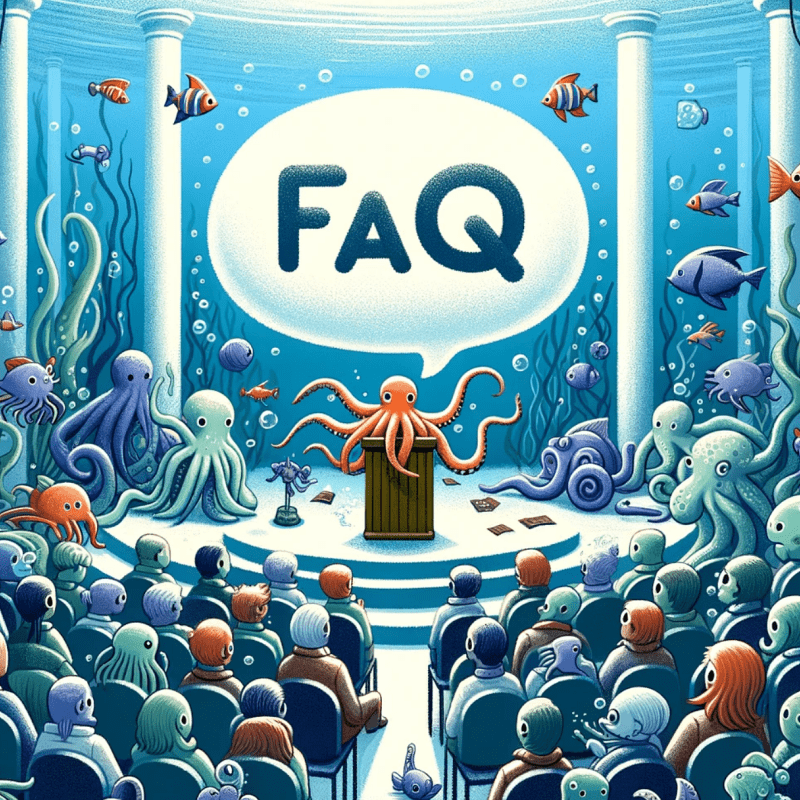In the digital age, data privacy has become a paramount concern for consumers and a significant compliance hurdle for businesses. The California Consumer Privacy Act (CCPA) sets a precedent for privacy legislation in the United States, presenting both challenges and opportunities for organizations. This blog post delves into the intricacies of CCPA compliance, the features of top compliance solutions, regulatory guidance and the cost-benefit analysis of these solutions, with a special focus on how an AI-powered data privacy and compliance platform can streamline this process.
What is the CCPA?
The CCPA is a legislative bill designed to enhance privacy rights and consumer protection for residents of California. This act grants California residents the unprecedented right to know about the personal data collected by businesses, the right to delete personal information businesses collect, the right to opt-out of the sale of personal data, and the right to non-discrimination for exercising their CCPA rights. The law signals a significant shift towards giving consumers more control over their personal information in a world where data has become a critical asset for businesses.

Features of The Best CCPA Compliance Solutions
Navigating CCPA compliance demands a multifaceted approach, given the complex and evolving landscape of data privacy regulations. To meet these challenges head-on, businesses must deploy robust compliance solutions equipped with a comprehensive suite of features designed to simplify and streamline the compliance process. Here’s a closer examination of the crucial features that define the best CCPA compliance tools and solutions in the market.
Automated Data Mapping
Comprehensive Visibility: Automated data mapping transcends basic inventory functionalities to provide a comprehensive view of personal data flows throughout the organization. This includes identifying where sensitive data first resides, how it moves between systems and departments, and where it exits the organization. Such visibility is paramount for pinpointing potential compliance risks to security controls and ensuring that data handling practices adhere to CCPA requirements.
Dynamic Tracking: Given the dynamic nature of data within organizations, automated data mapping tools are designed to track changes in real-time, ensuring that any addition, modification, or deletion of personal information is immediately reflected in the compliance framework. This dynamic tracking capability ensures that businesses can maintain an up-to-date understanding of their data landscape, a critical component for ongoing CCPA compliance.
Consumer Request Management
Efficient Request Processing: Consumer request process management tools are engineered to streamline the process of responding to consumer inquiries related to data access, deletion, and opt-out requests. This involves automating the reception, processing, and fulfillment of requests, significantly reducing the manual effort required and minimizing the risk of errors.
Enhanced Consumer Experience: By providing a seamless and efficient mechanism for handling consumer rights requests and requests, businesses can significantly enhance customer satisfaction. This not only aids in compliance but also strengthens trust and transparency between businesses and their customers, an invaluable asset in today’s privacy-conscious environment.
Real-time Monitoring and Reporting
Proactive Compliance Management: Real-time monitoring capabilities allow businesses to continuously scan for compliance issues, enabling them to identify and address potential violations before they escalate. This proactive approach to compliance management is essential for minimizing the risk of penalties and ensuring that CCPA obligations are consistently met.
Insightful Compliance Reporting: The ability to generate real-time reports on compliance status and vulnerabilities is crucial for both internal and external stakeholders. These reports offer valuable insights into the effectiveness of data privacy and security measures used, areas for improvement, and the overall health of the organization’s compliance posture. Additionally, in the event of regulatory inquiries or audits, detailed reporting can provide the necessary documentation to demonstrate compliance efforts and outcomes.
Integration Capabilities
Seamless Data Ecosystem Integration: The most effective CCPA compliance solutions are those that can seamlessly integrate with a business’s existing data infrastructure. This includes compatibility with various data storage systems, applications, and platforms, ensuring that compliance measures are embedded within the organization’s operational fabric.
Flexible and Scalable Solutions: Integration capabilities also extend to the flexibility and scalability of compliance solutions. As businesses evolve, so too do their data management and compliance needs. Solutions that can adapt to changes in the organization’s size, structure, and technology landscape are essential for ensuring long-term CCPA compliance and facilitating smooth business operations.

Cost and ROI Considerations
Investing in CCPA compliance software is a critical step for businesses to avoid legal pitfalls, maintain compliance, and foster trust among their consumer base. This investment can yield substantial returns.
Avoiding Hefty Fines for Non-compliance
Non-compliance with the California Consumer Privacy Act (CCPA) can result in considerable financial penalties for businesses. Notably, Facebook was fined $5 billion by the Federal Trade Commission for privacy violations, underscoring the severity of non-compliance consequences. Additionally, Google agreed to a $170 million settlement with the FTC over allegations that YouTube collected personal information from children without parental consent.
These instances exemplify the steep fines and reputational risks businesses face when they do not comply with privacy regulations. By investing in comprehensive compliance software, companies can safeguard against these severe penalties and protect their reputations.
Enhancing Customer Trust and Loyalty
In the digital age, consumer expectations around data privacy are higher than ever. Demonstrating compliance with the CCPA not only aligns with legal requirements but also signals to customers that a business values and protects their privacy. This commitment can enhance customer trust, loyalty, and ultimately, retention.
Streamlining Data Management Processes
Compliance software can automate and optimize data management processes, reducing manual labor and minimizing the risk of errors. This efficiency translates to operational savings, freeing up resources to focus on core business activities. Moreover, efficient data management underpins better decision-making, leveraging accurate and accessible data insights.
How to Choose the Right CCPA Compliance Software?
Choosing the right CCPA compliance and software solution is pivotal for achieving and maintaining compliance effectively and efficiently.
Integration with Current Systems
The ability of compliance software to integrate with existing IT infrastructure is crucial. Seamless integration minimizes disruption and facilitates a holistic view of data management and identity verification practices, ensuring that all personal information is accurately tracked and managed in compliance with the CCPA.
Scalability
As businesses grow, so too do their data privacy and management needs. The chosen compliance solution must be able to scale accordingly, accommodating increased data volume, new types of personal information, and evolving regulatory requirements without compromising performance or compliance.
Vendor Expertise and Support
The expertise of the software vendor in data security and privacy laws, and the level of support and training they provide, are vital considerations. Vendors should offer comprehensive resources and responsive support to address technical challenges and regulatory questions, ensuring businesses can effectively implement and utilize their compliance solutions.

Consent Management for CCPA Compliance Pays Off
Effective consent management is fundamental to CCPA compliance, requiring transparent data collection practices and simplified opt-out processes.
Transparent Data Collection Practices
Businesses must clearly communicate to users the specifics of the data being collected and the purposes for which it is used. This transparency is key to obtaining informed consent and fostering trust.
Simplified Opt-out Processes
The process for consumers to opt-out of the sale of their personal information must be straightforward, with a clear and accessible mechanism provided. Ensuring a user-friendly opt-out experience is essential for compliance and customer satisfaction.
Obtain User Consent Correctly
Compliance with the CCPA also hinges on the correct procurement of user consent, characterized by clear disclosure and an accessible opt-out mechanism.
Clear Disclosure
At the point of data collection, businesses must provide clear, conspicuous information about what data is being collected and how it will be used, ensuring consumers are fully informed.
Do Not Sell My Personal Information Link
A prominent link on the business’s homepage, titled “Do Not Sell My Personal Information,” is required, allowing consumers to easily exercise their right to opt-out of data sale.

Vendor Reputation and Support
The choice of a compliance software vendor should be informed by their reputation and the support they offer.
Positive Customer Testimonials
Feedback from existing users can offer insights into a software’s effectiveness and the quality of customer service provided by the vendor, guiding the selection process.
Comprehensive Support and Training Resources
The availability of extensive support and training materials is essential, ensuring that businesses can leverage their compliance solutions to the fullest, addressing both technical issues and regulatory questions.
Operationalize CCPA Requirements
Operationalizing CCPA compliance is an ongoing process that involves regular updates to customer data inventory, automating of consumer data privacy requests, and continuous employee training.
Regular Updates to Data Inventory
Maintaining an up-to-date inventory of data processing activities is crucial for identifying and addressing compliance gaps, ensuring that all personal information collected is accounted for and managed in accordance with the CCPA.
Automating Consumer Privacy Requests
Automation of the response process for consumer privacy requests is essential for handling these inquiries efficiently and within the mandated time frame, enhancing compliance and customer service.
Ongoing Employee Training
Continuous training on CCPA compliance and data privacy best practices is vital for fostering a culture of privacy awareness and compliance across the organization, ensuring that all employees understand their roles in maintaining compliance.

Frequently Asked Questions (FAQs)
Addressing the complexities of the California Consumer Privacy Act (CCPA) involves understanding its broad implications for businesses and consumers alike. The frequently asked questions (FAQs) section delves into the specifics, providing deeper insights into who is affected, the rights under CCPA, the characteristics of effective compliance tools, the differences between CPRA and CCPA, and the implications for non-California residents.
Who Does the CCPA Apply To?
The CCPA specifically targets for-profit entities that collect personal information from California residents and, in addition, meet at least one of the following criteria:
- Annual Gross Revenues: Businesses that have annual gross revenues in excess of $25 million.
- Volume of Personal Information: Businesses that buy, receive, sell, or share the personal information of 50,000 or more consumers, households, or devices for commercial purposes.
- Revenue from Selling Personal Information: Businesses that derive 50% or more of their annual revenues from selling consumers’ personal information.
These criteria mean that a wide range of businesses, from small startups to large corporations, could fall under the purview of the CCPA if they process a significant amount of data from California residents or have substantial revenue streams tied to personal information.
What Rights Are Afforded Under the CCPA?
The CCPA grants California residents unprecedented rights under privacy law concerning their personal information, including:
- The Right to Know: Consumers can request details about the specific pieces of personal information a business has collected about them, the categories of sources from which the information is collected, the business purposes for collecting or selling the information, and the categories of third parties with whom the information is shared.
- The Right to Delete: Individuals have the power to request the deletion of their personal information held by a business, although there are exceptions, such as when the information is necessary for the business to complete a transaction or comply with other regulatory requirements.
- The Right to Opt-Out: Consumers can direct businesses not to sell their personal information. This is facilitated through a clear and conspicuous link titled “Do Not Sell My Personal Information” on the business’s homepage.
- The Right to Non-Discrimination: Businesses cannot discriminate against consumers who exercise their CCPA rights, such as by denying goods or services, charging different prices, or providing a different level or quality of goods or services.

What Defines an Effective CCPA Compliance Tool?
An effective CCPA compliance tool is one that not only facilitates adherence to the regulatory requirements but also integrates seamlessly into a business’s existing processes. Key features include:
- Automated Data Mapping and Inventory: Tools that can automatically discover and classify personal information across systems and applications, helping businesses maintain an accurate inventory of data processing activities.
- Consumer Rights Management: Features that enable businesses to efficiently process and fulfill consumer requests within the mandated time frame, including rights to access, delete, and opt-out.
- Real-time Monitoring and Reporting: Capabilities for continuous monitoring of compliance status and generating reports that demonstrate adherence to the CCPA, useful both for internal governance and regulatory audits.
- Integration and Scalability: The ability to integrate with existing IT and data management systems, ensuring that compliance measures do not disrupt business operations, and can scale as the business grows and as regulatory requirements evolve.
Are CPRA Compliance Tools Different from CCPA?
The California Privacy Rights Act (CPRA) is an amendment to the CCPA, which enhances and expands upon the original regulations. While CPRA compliance tools will inherently cover CCPA requirements, they must also address additional stipulations introduced by the CPRA, including:
- Sensitive Personal Information: The CPRA introduces new provisions around sensitive personal information, requiring businesses to provide consumers with the ability to limit the use and disclosure of such information.
- Correction of Personal Information: Consumers are granted the right to request correction of inaccurate personal information held by a business, adding another layer of consumer rights management for compliance tools to handle.
- Data Minimization and Retention: The CPRA emphasizes principles of data minimization and retention, necessitating tools that can help businesses review and update their data collection, processing, and retention practices to comply with these principles.
What If I Am Not a California Resident?
While the CCPA and CPRA specifically protect consumer data for California residents, their influence extends far beyond the state’s borders. Many businesses choose to apply CCPA-compliant privacy practices to all their customers, regardless of residency, for several reasons:
- Simplicity: It can be simpler for businesses to adopt a uniform approach to privacy across all customers rather than implementing state-specific policies.
- Customer Expectations: As awareness and concern about data privacy grow, consumers everywhere are beginning to expect the level of protection and rights afforded by laws like the CCPA.
- Preparation for Future Regulations: With other states and countries enacting similar privacy laws, adopting CCPA-compliant practices now can prepare businesses for broader regulatory requirements in the future.

Navigating the intricacies of CCPA compliance is a multifaceted endeavor that demands a well-orchestrated balance between adhering to stringent regulatory mandates and catering to the operational and strategic imperatives of the business. This nuanced approach to compliance necessitates a deep understanding of the essential features of effective compliance solutions, a thorough assessment of the associated costs and the potential return on investment, and the judicious selection of tools and practices that align with the unique needs and objectives of the organization.
Understanding the comprehensive features of top-tier CCPA compliance solutions is the first step in this journey. These solutions, equipped with capabilities such as automated data mapping global privacy control, efficient consumer request management, real-time monitoring and reporting, and seamless integration with existing systems, serve as the cornerstone for establishing a robust compliance framework. They not only automate and simplify the complexities associated with data privacy regulations but also provide businesses with the visibility and control needed to manage personal data responsibly.
Equally important is a thorough cost-benefit analysis that weighs the initial investment in compliance solutions against the potential financial and reputational risks of non-compliance. This evaluation should consider not only the direct costs associated with penalties and legal fees but also the indirect costs related to lost customer trust and potential damage to the brand. Moreover, the ROI extends beyond risk mitigation, encompassing operational efficiencies, enhanced customer trust and loyalty, and the competitive advantage that comes from being recognized as a privacy-conscious organization.
Choosing the right CCPA solutions and compliance tools and practices is a critical decision that requires careful consideration of the organization’s specific data privacy needs, existing IT infrastructure, and future growth plans. The selected solutions should offer scalability to accommodate evolving business requirements and regulatory changes, ensuring long-term viability. Additionally, the vendor’s expertise, customer support, and the ability to provide ongoing training and resources are crucial factors that can significantly impact the effectiveness of the compliance program.
In conclusion, addressing CCPA compliance challenges is not just about meeting regulatory requirements; it’s about strategically leveraging these obligations to reinforce customer trust, operationalize ethical data practices, and distinguish the business in a crowded marketplace. By adopting a comprehensive and strategic approach to compliance, businesses can transform the perceived burden of CCPA into a compelling opportunity for growth and differentiation. This proactive stance on privacy not only safeguards against legal and financial repercussions but also positions the organization as a leader in the burgeoning landscape of data privacy and protection.



